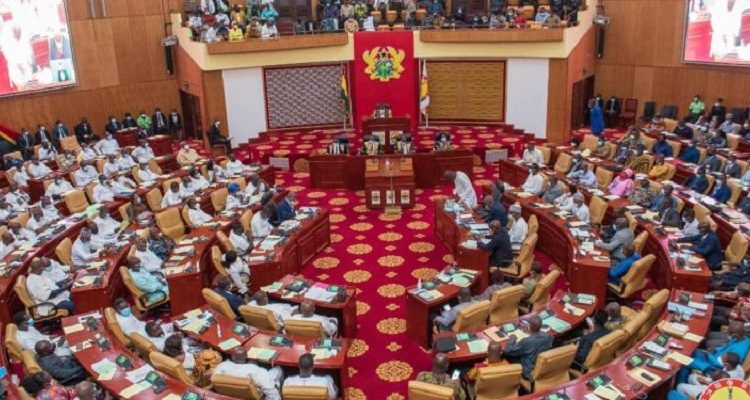Parliament has ratified three visa waiver agreements between Ghana and the governments of Colombia, Mozambique, and São Tomé & Príncipe.
This marks a significant step toward deepening diplomatic relations, enhance economic cooperation, and promote regional and international integration.
The agreements, laid before Parliament on July 22, 2025 by the Minister for Health, Kwabena Mintah Akandoh, on behalf of the Minister for Foreign Affairs, were referred to the Committee on Foreign Affairs and Regional Integration for consideration, in accordance with Article 75 of the 1992 Constitution and Order 245 of Parliament’s Standing Orders.
Colombia Agreement
One of the key agreements ratified was the Mutual Visa Exemption Agreement for Holders of Diplomatic, Official, and Service Passports between Ghana and the Republic of Colombia. This agreement, signed in October 2024 during COP 16 in Cali, Colombia, allows eligible passport holders from both nations to enter, transit through, and remain in the other country without a visa for up to 90 days in a calendar year.
The Committee emphasised that the agreement will not only enhance mobility for government officials but also deepen South-South cooperation in critical sectors such as agriculture, education, and energy. It further noted that the pact aligns with Ghana’s immigration policies and imposes no financial burden beyond existing diplomatic responsibilities.
Importantly, the Ministry of Foreign Affairs was commended for implementing stricter passport security protocols and a more streamlined ratification process. The Committee, satisfied with the legal and strategic merits of the agreement, unanimously recommended its ratification.
Mozambique Agreement
Parliament also ratified the Bilateral Visa Waiver Agreement for Holders of Diplomatic and Service Passports between Ghana and the Republic of Mozambique.
This agreement emerged from recent high-level reciprocal diplomatic engagements and is in line with broader goals of fostering Pan-African integration under frameworks like the African Continental Free Trade Area (AfCFTA), the Southern African Development Community (SADC), and the African Union’s Agenda 2063.
Although the Committee acknowledged a minor loss of visa-generated revenue, it concluded that the potential long-term benefits in terms of trade, tourism, security cooperation, and political dialogue significantly outweigh any short-term drawbacks. The agreement is fully compliant with Ghana’s constitutional provisions and requires no additional legislation
São Tomé & Príncipe Agreement
The third agreement ratified by Parliament is a Bilateral Agreement on Visa Waiver for Holders of Diplomatic, Service, and Ordinary Passports between Ghana and the Democratic Republic of São Tomé and Príncipe. Unlike the previous two, this pact extends the visa waiver to ordinary passport holders, allowing visa-free travel for up to 90 days within a 180-day period.
Originally signed in October 2021, the agreement had experienced delays in ratification, prompting concerns about Ghana’s responsiveness to bilateral commitments. However, the Ministry of Foreign Affairs has since instituted a new policy to ensure treaty ratifications are concluded within a three-month window going forward.
The Committee noted that while the agreement could lead to some loss in visa fees, the expected gains in people-to-people exchanges, trade, and tourism, particularly in the Gulf of Guinea region, make the agreement highly beneficial. Furthermore, it includes provisions for the protection of domestic laws and national security, including the right to deny entry to individuals who pose a risk.
The Committee concluded that this agreement supports Ghana’s dualist legal framework and its foreign policy objectives, and urged Parliament to ratify it without delay. Parliament subsequently approved it by resolution.
Strategic Gains and Broader Implications
The MPs said collectively, the ratified agreements signal Ghana’s growing commitment to international cooperation and regional integration.
According to the lawmakers, by facilitating easier travel for diplomatic and, in some cases, ordinary passport holders, the country is positioning itself as a proactive player in global and continental affairs.
“The agreements ratified today reflect a forward-looking foreign policy that supports not only diplomatic engagement but also economic transformation through trade, tourism, and educational exchange,” noted the Committee in its consolidated report.
These developments come amid broader reforms within the Ministry of Foreign Affairs, including enhanced passport security protocols and a renewed focus on timely treaty implementation, as Ghana continues to strengthen its global partnerships through mutual trust and legal compliance.
By Ernest Kofi Adu, Parliament House


